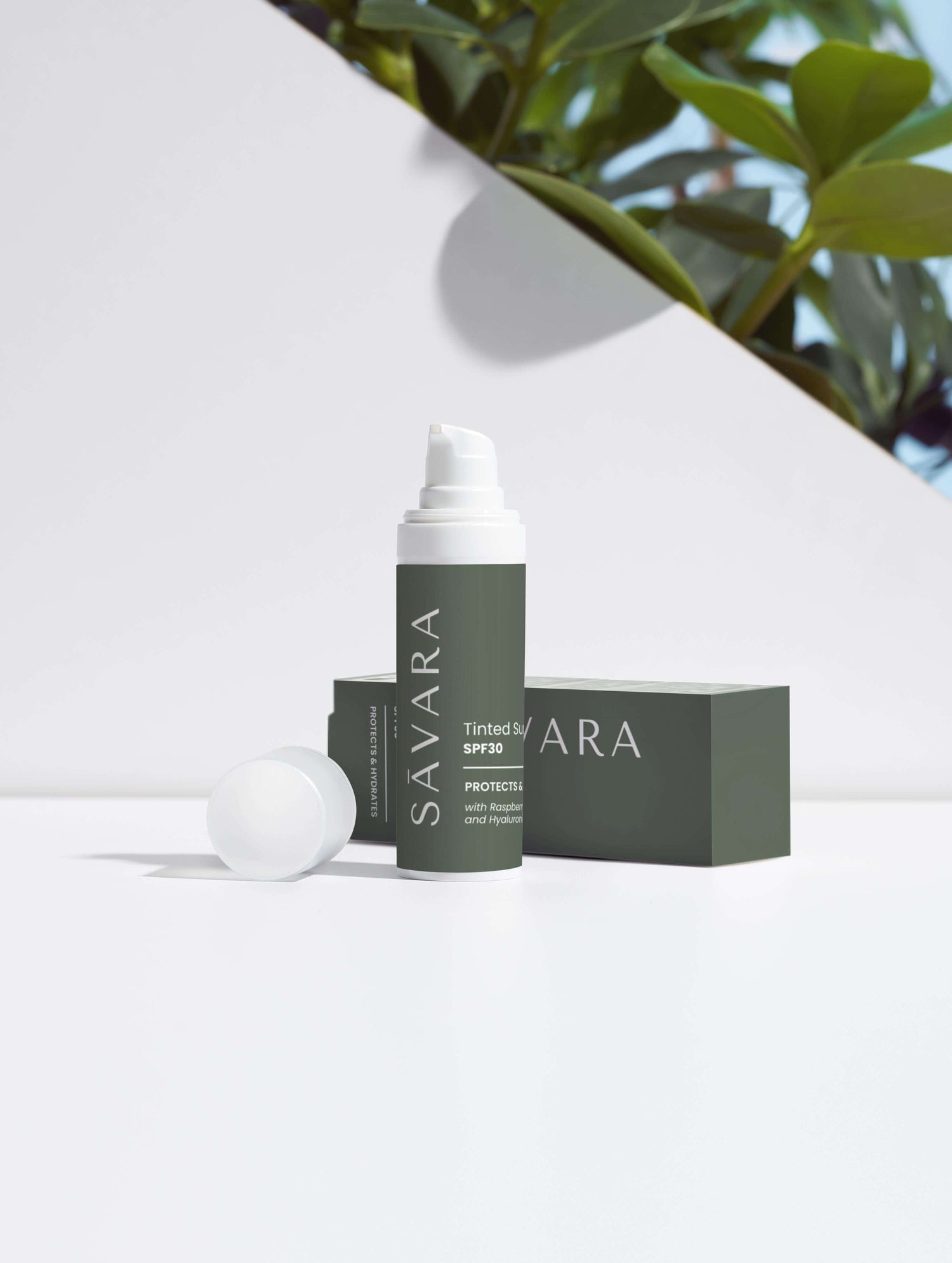When it comes to skincare, the term 'acid' can often be a source of concern. However, despite its name, Hyaluronic Acid is a gentle yet powerful ingredient in skincare, particularly beneficial for women over 40.
This article aims to demystify Hyaluronic Acid, exploring its benefits and optimal levels for use.
What is Hyaluronic Acid?
Hyaluronic Acid is a naturally occurring substance in our bodies, known for its incredible capacity to retain moisture. It plays a crucial role in maintaining skin hydration and aiding tissue repair.
Unlike other acids used in skincare, Hyaluronic Acid is not exfoliating or irritating. Instead, it's celebrated for attracting and retaining moisture, making it essential for healthy, hydrated skin.
Our skin's natural Hyaluronic Acid levels diminish as we age, leading to a loss of moisture, elasticity, and visible signs of aging, such as fine lines and wrinkles.
Topical application of Hyaluronic Acid helps replenish what time has reduced, providing numerous benefits to the skin.
The Science Behind Hyaluronic Acid
Understanding the science of Hyaluronic Acid helps in appreciating its role in skincare. As a polysaccharide or a type of carbohydrate, its structure allows it to bind with water molecules, making it an excellent hydrator and a revered ingredient in the skincare industry.
This might sound complex, but it's a large molecule of many sugar molecules bound together.
Hyaluronic Acid is unique and particularly effective in skincare. Its molecular structure allows it to bind and retain water molecules (one gram of Hyaluronic Acid can hold up to six liters of water!)
Hyaluronic Acid's Impact on Skin Health at 40
When applied to the skin, this hydration ability translates into numerous benefits:
-
Moisture Retention: Hyaluronic Acid helps maintain skin hydration by trapping moisture from the environment and locking it into the skin. This is crucial for keeping the skin plump, hydrated, and youthful-looking.
-
Viscoelasticity: Hyaluronic Acid contributes to the viscoelastic properties of the skin, meaning it helps the skin return to its original shape after being stretched or compressed. This property is essential for skin flexibility and resilience.
- Barrier Function: By maintaining hydration, Hyaluronic Acid also supports the skin's barrier function, protecting it from environmental stressors and preventing moisture loss.
Hyaluronic Acid's Role in Anti-Aging
The anti-aging benefits of Hyaluronic Acid are primarily due to its ability to plump the skin, reducing the appearance of fine lines and wrinkles. As the skin ages, it loses moisture and elasticity.
By replenishing lost moisture and enhancing the skin's ability to retain it, Hyaluronic Acid helps mitigate these signs of aging.
Hyaluronic Acid Benefits for Skin Health at 40
-
Deep Hydration: Hyaluronic Acid can hold up to 1000 times its weight in water, ensuring deep skin moisturization. This hydration combats dryness and maintains a plump, dewy appearance.
-
Smoothes Fine Lines: Its moisture-retention capabilities help smooth out fine lines and wrinkles, promoting a youthful complexion.
-
Enhances Skin Elasticity: Regular use of Hyaluronic Acid boosts skin elasticity, providing a firmer, more toned skin texture, which is crucial for mature skin.
- Promotes Healing: Known for its regenerative properties, Hyaluronic Acid aids in faster wound healing and can reduce the appearance of scars.
The Role of Hyaluronic Acid in Overall Wellness
Beyond skincare, Hyaluronic Acid is essential for maintaining joint health and eye comfort.
It acts as a lubricant in the joints and maintains moisture levels in the eyes, relieving common age-related issues.
Incorporating Hyaluronic Acid into Your Skincare Routine at 40
Incorporating Hyaluronic Acid into your daily skincare routine is effortless and highly beneficial.
This powerful ingredient can be found in various skincare products, but serums and creams are particularly effective due to their formulation and how they interact with the skin.
-
Serums: A serum containing Hyaluronic Acid is typically lightweight and penetrates deeply into the skin, delivering intense hydration. It's best applied after cleansing and toning but before moisturizing. This allows the Hyaluronic Acid to draw moisture deep into the skin's layers, maximizing its hydrating and plumping effects.
- Creams: Hyaluronic Acid-infused creams are excellent for locking in moisture. They usually have a thicker consistency and are ideal for forming a protective barrier on the skin, keeping it hydrated throughout the day or night.
What Percentage of Hyaluronic Acid is Best?
For women over 40, understanding the nuances of Hyaluronic Acid concentrations in serums is crucial for choosing the right skincare products. Hyaluronic Acid serums come in various concentrations, each offering distinct benefits and catering to different skin needs.
Understanding Hyaluronic Acid Concentrations
-
Low Concentrations (Below 1%): Serums with lower concentrations of Hyaluronic Acid are gentle and suitable for all skin types, including sensitive skin. They provide adequate hydration and are perfect for daily use. These serums can effectively maintain the skin's moisture balance without overwhelming it.
-
1% Concentration: Often considered the optimal concentration for a Hyaluronic Acid serum, a 1% formulation perfectly balances efficacy and gentleness. It's potent enough to deliver noticeable hydration and plumping effects, making it particularly beneficial for mature skin that requires more intensive moisture. For instance, our Peptide Serum, with its 1% Hyaluronic Acid concentration, is designed to offer optimal hydration while being gentle enough for regular use.
- Higher Concentrations (Above 1%): While more concentrated serums (ranging from 1.5% to 2% or more) might seem more effective, they don't necessarily provide better results. Higher concentrations can sometimes lead to issues such as drawing moisture out of the skin rather than into it, especially in low-humidity environments. This could lead to dryness rather than hydration.
Choosing the Right Hyaluronic Acid Serum
When selecting a Hyaluronic Acid serum, there are several factors to consider:
-
Concentration: The concentration of Hyaluronic Acid in serums can vary. A concentration of around 1% is often ideal. It's effective enough to provide significant benefits without causing irritation, making it suitable for all skin types, including sensitive skin.
-
Molecular Weight: Hyaluronic Acid comes in different molecular weights, which determine how deeply it can penetrate the skin. Serums that contain a mix of low, medium, and high molecular weight Hyaluronic Acid offer the best of all worlds – surface hydration and deeper moisturizing effects.
-
Complementary Ingredients: Look for serums that combine Hyaluronic Acid with other beneficial ingredients like vitamins, antioxidants, and peptides. These ingredients work synergistically to enhance skin health, provide anti-aging benefits, and improve skin texture and tone.
- Quality and Purity: Opt for well-formulated serums free from unnecessary additives and harsh chemicals. A high-quality Hyaluronic Acid serum will be pure, effective, and gentle on the skin.
Can Too Much Hyaluronic Acid Damage Skin?
Hyaluronic Acid is widely celebrated for its hydrating properties in skincare, but like with any ingredient, there can be too much of a good thing.
Understanding the right concentration and its interaction with your skin is crucial for reaping its benefits without adverse effects.
The Safety of 1% Hyaluronic Acid
A 1% concentration of Hyaluronic Acid is generally considered safe and effective for most skin types. It's a balanced concentration that provides moisture and plumpness to the skin, reducing the appearance of fine lines and wrinkles without the risk of adverse side effects.
Potential Issues with Higher Concentrations
While Hyaluronic Acid is inherently safe and naturally occurring in the human body, using it in excessively high concentrations in skincare products can lead to some issues:
-
Moisture Imbalance: One of the primary functions of Hyaluronic Acid is to draw moisture to the skin. In very high concentrations, if the air around is not sufficiently humid, it might start to remove moisture from the deeper layers of the skin instead. This could lead to skin dehydration rather than providing the intended hydration.
-
Barrier Disruption: Overloading the skin with Hyaluronic Acid can disrupt the natural lipid barrier, increasing sensitivity and irritation. This is primarily a concern for those with sensitive or reactive skin types.
- Diminishing Returns: There is a limit to how much moisture the skin can hold. Beyond a certain point, additional Hyaluronic Acid will not provide any extra benefits and can leave the skin feeling heavy or greasy.
Balancing Hyaluronic Acid Use
To maximize the benefits of Hyaluronic Acid without overdoing it, consider the following tips:
-
Follow Product Instructions: Use Hyaluronic Acid products as directed. Applying more products than recommended does not necessarily increase its benefits.
-
Pay Attention to Skin's Response: Everyone's skin is different. Pay attention to how your skin reacts to a Hyaluronic Acid product and adjust usage accordingly.
- Consult a Dermatologist: If you have concerns about the concentration of Hyaluronic Acid in your skincare products or how they interact with your skin, consulting with a dermatologist can provide personalized advice.
The Impact of Hyaluronic Acid on Skin at 40
For women in their 40s and beyond, the impact of Hyaluronic Acid on the skin can be transformative. Refilling the moisture lost with age helps restore the skin's youthful plumpness and smoothness.
Regularly using Hyaluronic Acid in Serum form as part of your skincare routine can reduce fine lines and wrinkles, improve skin texture, and create a radiant, youthful complexion.




